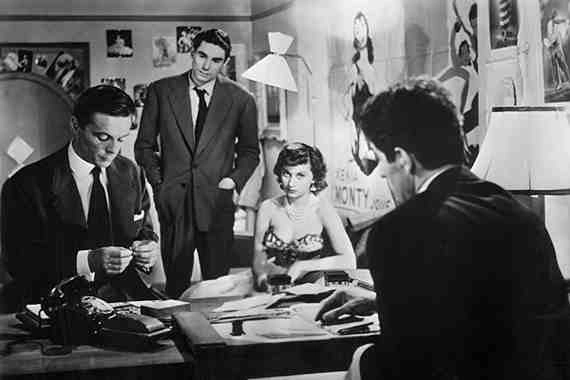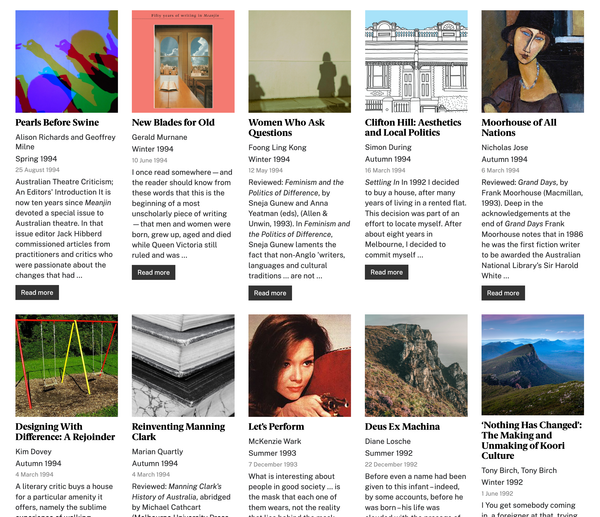Auto-Gloss
Style and risk in life-writing; reviews that spill over.
I like writing short reviews because they require me to get to the point, a bracing requirement for a person who tends to dither for several thousand words. The problem is, once the review is filed, there is often a lot left to say.
My review of Dominic Gordon’s essay collection, Excitable Boy, for Guardian Australia was published last week. It’s a terrific debut. That’s not to say it is flawless, which is a ridiculous expectation to bring to any debut. Indeed I am thrilled to read careening debuts that don’t quite meet all their marks, and Excitable Boy, which zips with style and ambition, falls into this category. Too many debuts have had all the panache and provocation of their early drafts edited out of them, if ever it were there in the first place, and who needs that? I wanted to argue with the persona of Excitable Boy, and I had a lot of questions about the women in his life, about the way he represented them, or left them out altogether, and I had a feeling he might want to argue with me too. I enjoyed writing the review, which, again, is here, and I’m much obliged to the good folks at Guardian Australia for commissioning it. My assessment of the book lies in the review, and what follows are a set of rather peripheral comments about the strange world into which Excitable Boy was published.

This was a somewhat unusual commission because when it landed in my inbox I knew nothing at all about the author or the book. I’d read none of Gordon’s earlier work. This may simply be a Sydneysider’s obliviousness to the Melbourne scene, or a function of his being off the scene, or most likely a result of my not being much of a party rat these days, and also, yes, living in Canada. Perhaps there was hype or gossip out there, but none of it reached me. I came to the book cold, and was impressed and surprised.
I read lots of Australian life-writing, by which I mean memoirs and essays. To those who bridle against the essay being grouped as a form of life-writing, I say that the essay is always a highly personal form, even when it omits the personal pronoun, even when it does not record personal experience per se. Excitable Boy has been marketed as a book of essays, and presents to the reader a set of vignettes about the author’s life, and is unambiguously a form of life-writing. When I say that much Australian life-writing follows a limited number of templates, I don’t necessarily mean that as an indictment, that’s how genres are formed, and indeed how most debuts are written. Writers find a model and see what they can do with it, they adapt pre-existing forms to their own ends. Publishers also have a vested interest in these templates; for all the crackle of ‘utterly original debuts’ and ‘singular voices’ and ‘you’ve never read anyone like this’, writers who sound a bit like other writers are easier to position in the market.
There are, I think it’s fair to say, a handful of writers who have exerted a tremendous force of influence over Australian memoirists and personal essayists in the past two decades; Joan Didion and Helen Garner chief among them, with notable recent service by Maggie Nelson and Leslie Jamison. This is not a judgment, it’s an observation. If Didion and Garner are preoccupied with the difficulties of finding anchors for moral judgments, Jamison and Nelson situate their work at the friction point of categories and life as it is lived and felt. They’re all great thinkers on contradiction, hypocrisy, self-doubt and these themes make their prose quite slippery too. You can hear their cadences echo across the non-fiction shortlists of the past ten years (nope, not naming names). This is a general comment, and obviously – obviously – there are many books that follow in the grooves laid by other influences; it is, yes, a white woman observation too, about the white women who influence memoirs and essays written by white women, and read by other white women, and largely are published by white women. Such is Australian publishing.
Gordon pulled a startlingly different set of templates off the shelf, indeed his influences are primarily cinematic. The hide! Here is a debut memoirist weaned on gangster films, and especially the gangster anti-heros lionised by the New Wave, a writer preoccupied with narrative effects, with style, rather than psychological truths or moral reckoning. He is not inclined to draw lessons or conclusions from his experience, nor is he in the business of polemicism or sociological inquiry. You could frame this book as a working-class-childhood memoir, as a sexual-coming-of-age memoir, a trauma memoir, a memoir of masculinity, but none of these categories really contain the book because Gordon isn’t corresponding with any of their conventions. It’s hard, therefore, to read Excitable Boy, within an Australian tradition of memoir-writing, because Gordon has very little in common with other writers in the field.
Australian writers are often asked to make a case for the social value of their work beyond its aesthetic ambitions, even for its impact. This is especially the case for non-fiction writers, who suffer the expectation that their work must somehow be useful, that it must tell an untold story, that it must benefit the reader somehow, through instruction or correction. An unabashed commitment to style such as that Gordon demonstrates is a gutsy repudiation of this expectation that non-fiction writing propagates good in the world, or rather, an affirmation that style itself is a good worthy of wide distribution.
Excitable Boy also struck me as a risky book to publish into an often highly censorious public culture that loves to moralise about crime and demands redemption narratives from its reprobates. In particular it asks minoritised writers, including writers from working class backgrounds, to step in line with the values of hegemonic culture, or to justify at length why they choose to reject those. In narratives about class, this involves grappling with the tropes of bootstrapping and social mobility by industry, grit and will. In narratives about crime and other transgressions of social norms, manoeuvres that resemble penitence, and rehabilitation are required.
Gordon’s persona is an anti-social kid, to say the least, living a life built around property crime, in the first instance. Graffiti is an aesthetic practice but Gordon doesn’t sanitise it by turning it into street art, if he’s interested in craft, he’s also interested in risk, danger, making a mark. There’s a lot of shoplifting, stealing bags and wallets at parties. There’s an extremely funny vignette about Gordon’s aspiration to break into a safe in homage to his gangster film heroes. Feel the talkback hosts getting hot under the collar? Getting into fights and punching on. Headline territory. Not only does Gordon narrate the transgressions of his youth without flinching or apologising, he goes further and aestheticises them. His heists are exercises in style, his narration of them small homages to Jean-Pierre Melville and Jules Dassin. There’s no invocation of the larrikin tradition, or indeed of the sentimental crook who’s learned his lesson and wants to make amends. As I write in my review, there is a kind of recovery arc traced in the collection but this is explicitly not a work of redemption or reconciliation with bourgeois values.
As it happens, most of the public institutions of Australian literature are exemplary sites for the reinforcement of bourgeois values and the assimilation of difference. There’s a scene in Excitable Boy where the narrator watches a thief prowl around the reading room of the State Library of Victoria, looking for bags to lift. He doesn’t intervene, he just registers what’s going on. It’s a tremendously subversive scene, and one that I reckon would be harder for many readers to forgive than all the seedy sex (beats, glory holes, porn cinemas). So much of our literary culture does still follow a kind of tabloid morality, looking to identify protagonists as good or bad, setting out facile codes of conduct for artists, transforming morally complex subjects into parables for children. As I read the book and wrote the piece I couldn’t shake visions of Gordon being quizzed on a festival stage about his moral commitments, of him being interviewed about his lurid past in the hope of extracting a moral lesson from him. Are you sorry? Would you do it again? Is it true that our reading rooms are full of thieves? I hope he gets asked better questions than these.
Excitable Boy returned me to Jules Dassin’s classic 1955 film Rififi. The famous silent heist scene is referenced several times in Excitable Boy and I recommend you watch it, if only as a prelude to watching the whole thing.
A longer essay by me on Kyla Chayka’s Filterworld was also published by the Sydney Review of Books this week. This is already quite long, and was in the works for months, so I will restrain myself from adding voluminous glosses. Filterworld is a useful book that is asking very timely questions about how algorithms and platform capitalism determine the way contemporary culture is made and distributed. It’s also a book that I found tremendously frustrating, firstly because it’s so reluctant to consider systemic responses to platform capitalism (regulation!), foregrounding instead how we can all become curators of our own dream cultural lives. Chayka’s approach to popular culture also lacks a theoretical underpinning. This isn’t a critical problem for a magazine feature-writer, which is Chayka’s dayjob at the New Yorker, but it’s a real weakness in a book that is essentially about the mediation of popular culture.
Finally, happy news? Lauren Groff opened a bookshop. I am a late, enthusiastic convert to the fiction of Lauren Groff, not to mention the intense oddballery of her public persona – this story knocked me sideways – and generally a fan of successful writers using their cultural and economic capital to benefit the culture. See also Kelly Rimmer buying Collins Books in Orange a few years ago.
Also, Miranda July has a new novel out called All Fours. Regrettably George Saunders has decreed it ‘mind-blowing’. I have long held large, longwinded and contradictory views about Miranda July and her contribution to the culture. (See also: Sheila Heti.) I have been circling around this new novel, certain that if I read it I will be compelled to write something long, large, longwinded, contradictory, and probably self-indulgent about it. This review by Christine Smallwood (a critic whose work I will always read) confirms the danger is live: ‘Her investigation of the body, desire, loneliness, and the failure to connect used to be maligned as twee — as if having an unusual mind were a weakness — yet time has vindicated her careful, compassionate documentation of the anxiety of life in the early digital era.’
Thanks for reading Infra Dig! Subscribe for free to receive new posts and support my work.


